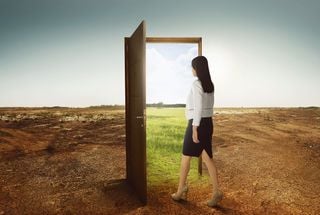Sustainable Hospitality Industry: A Complete Stakeholder Turnaround
Shaping the Future of Hospitality: Continuous Improvements or Radical Changes?
Sustainability in Hospitality — Viewpoint by Willy Legrand
Radical Changes are needed. That is in how we build, how we operate, how we report and communicate ESG initiatives, but also in how we think as owners, operators, employees, and as guests.The biggest change the industry needs to address is the mindset. Mindset from all stakeholders involved is needed for a successful change.
That means, mindset in how we see a hospitality business should run, the investments we put into sustainability, how we prioritize sustainable building methods, systems, and operations. A lot of sustainability installations that truly make that difference in energy, water and waste savings typically come with high investments, and stakeholders need to understand the benefits that come with the investments, not just to the environment but to the business. The innovations are there, the tools to help us reduce emissions from operations are there, so are tools to help the industry with data collection, carbon emissions, reporting on a global scale are there, however they require more of prioritization than what they have been given to date.
Equally, the mindset in how we see hospitality stays/experiences. This means, the expectations we have as guests and travelers, Hospitality is an industry and business whose first priority has always been exceeding guest expectations. We operate to make guests happy, comfortable and to experience the destination they are visiting. Locality plays a huge role, understanding where we are operating, the demographics of our guests will shape how operators or owners create a hospitality product and service offering. If guests re-imagine their expectations of what it means to have a holiday/vacation; of what luxury means to them; of what they are willing to accept and experience from hospitality business and shape all their viewpoints to a more sustainable vision; this will naturally push all changes within the industry and push the willingness of owners and operators to make those changes. As it relates to the smaller investment sustainable changes such as materials used when designing, where and what we source FF&E/OS&E items from, the extent to which we can go single use waste free and the alternatives we use thereof…. all these are in some way dependent on guests' perceptions, and acceptance. If guests are completely unwilling to accept some of these sustainability changes, then it makes it more difficult as an industry all together to fully conform.
However, we do have to be mindful that in some cases, an incremental change and continuous improvements is how some projects must develop sustainably. In some instances, a direct radical change is simpler than for others. Depending on the business model, incremental changes may be the only safe, viable option for the business to run successfully in the long term. When we think of new builds versus old properties, or historical buildings, this within itself sets the stage of what can be done as it relates to sustainable initiatives and at which speed. For example, a start-up, or business in the growth phase, may also have to stage out their sustainability plan in order to achieve their desired goals in a long run.
What we are trying to achieve as an industry certainly cannot be done within a few months. As long as there is transparency as to what we are doing in the name of sustainability and why, with a time plan, as an industry, as stakeholders we must be open minded and understanding of where we are, and how we can achieve the most sustainable outcome for the entire industry.

 by
by 

